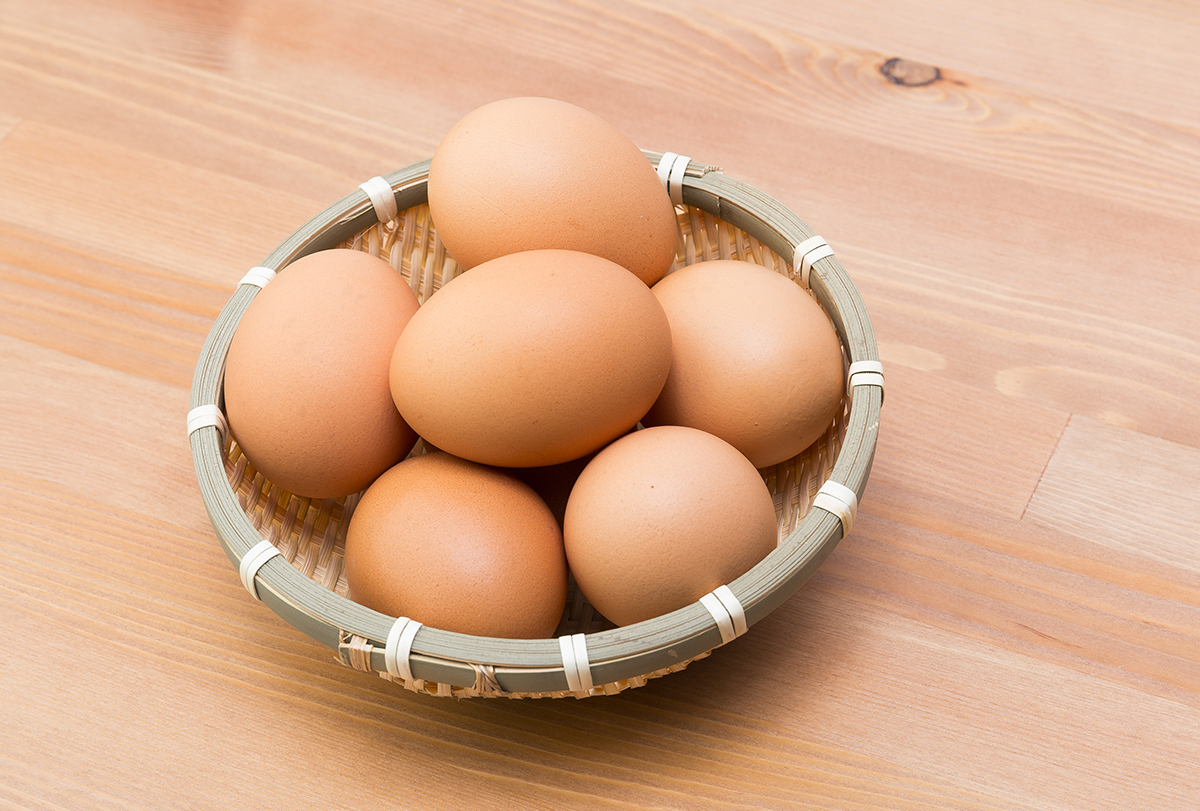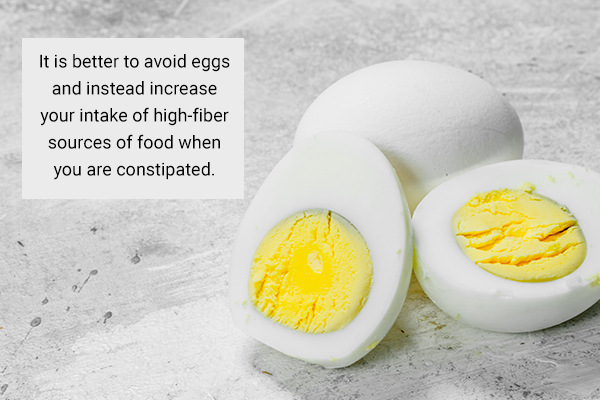In this article:
Healthy bowel movement is a necessary life function that is determined by the food you eat, water your drink, and lifestyle you have.

Passing stool with regular frequency is important to prevent conditions such as colorectal cancer and cardiovascular diseases. (1)
Diet plays a major role in passing stool regularly, particularly the inclusion of fiber. (2) Since eggs contribute zero fiber to the diet, they are not ideal foods to treat constipation.
Why You Should Not Consume Eggs if You Have Constipation
Eggs are a great source of protein, and it is recommended that you include eggs as part of your daily diet. While eggs may not cause constipation directly, eating them doesn’t necessarily aid in resolving constipation.
Population studies evaluating the diets of adults and comparing constipation status have found a prevalence of constipation in egg eaters. While some studies suggest consuming high-quality protein (such as in eggs) can create softer stools, fish protein has proved to be more easily digested than eggs. (3)(4)
Though you do not need to avoid eating eggs if you have constipation, expert reports have found no benefit in eating them during constipation. (5)
What Is Constipation?

Normal stool frequency in adults has been identified as between three times per week to three times per day with some amount of strain and urgency, (6) and your “normal” stool frequency may be different from someone else’s.
Constipation then occurs when your bowel movement reduces compared to your regular. In addition to reduced stool frequency, you may experience symptoms such as bloating in the stomach, hard stools, excessive strain, longer duration to defecate, and hard stools.
Constipation has a worldwide prevalence of 12%–19% and is more commonly seen in North American and European countries as compared to countries in Asia. (7)
How to Treat Constipation
Functional constipation that is not caused by an illness or medication can be treated by increasing fiber and water intake throughout the day.
Recommended foods include whole grains such as wheat, corn, and oatmeal and fruits and vegetables including kiwi, banana, persimmons, figs, plums or prunes, carrots, peas, green leafy vegetables, and sweet potato. (8)
Make sure you consume at least 2 liters of water throughout the day. (8)
Special laxatives may be prescribed by your doctor in case of persistent constipation. (5)
What Foods Should Be Avoided if You Have Constipation?
Deep-fried foods, milk, cheese, fast foods, white bread, and other pastry or baked goods need to be avoided if you are experiencing constipation.
Practical Takeaways

- Constipation is difficulty in passing stool, and if the frequency of your bowel movement is lesser than what is normal for you, you may be suffering from constipation.
- Generally, increasing fiber and fluid intake is necessary to treat constipation.
- Eggs contain no fiber, and while studies have not found them to increase constipation, there is no evidence to support their benefit in constipation either.
- It is better to avoid eggs and instead increase your intake of high-fiber sources of food when you are constipated.
- Was this article helpful?
- YES, THANKS!NOT REALLY


